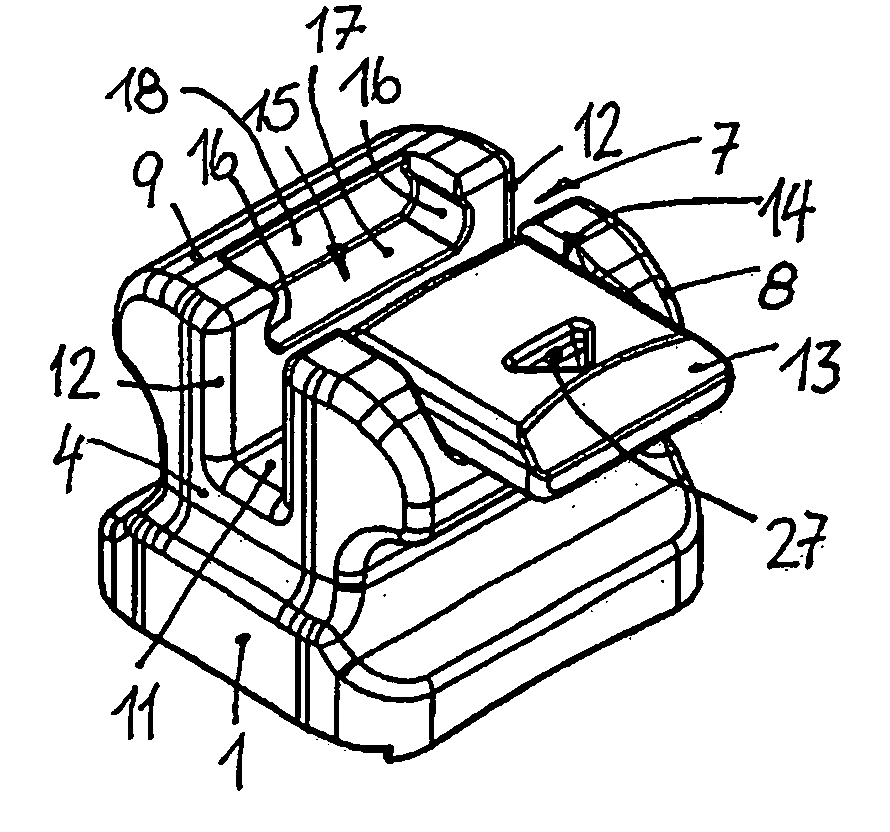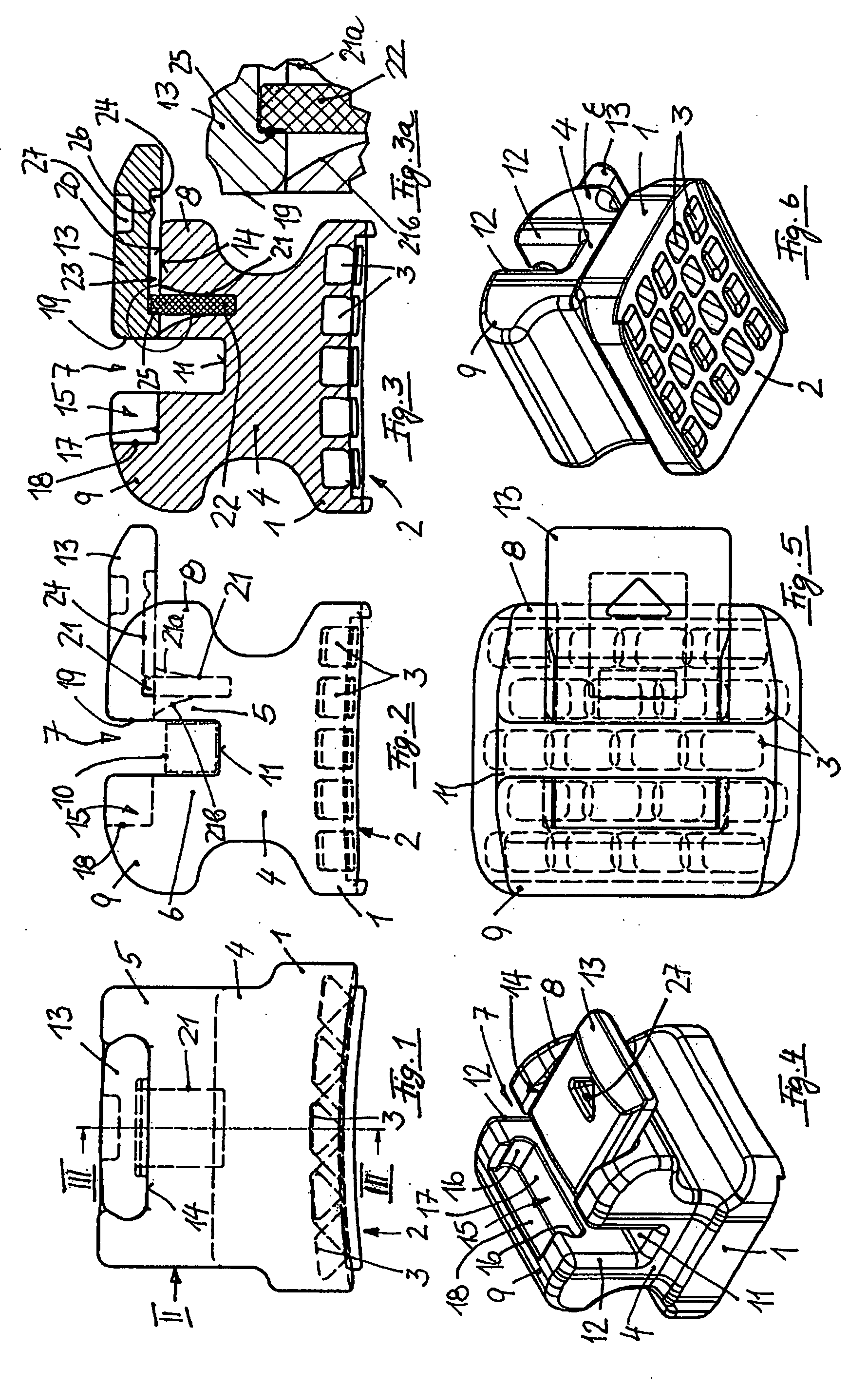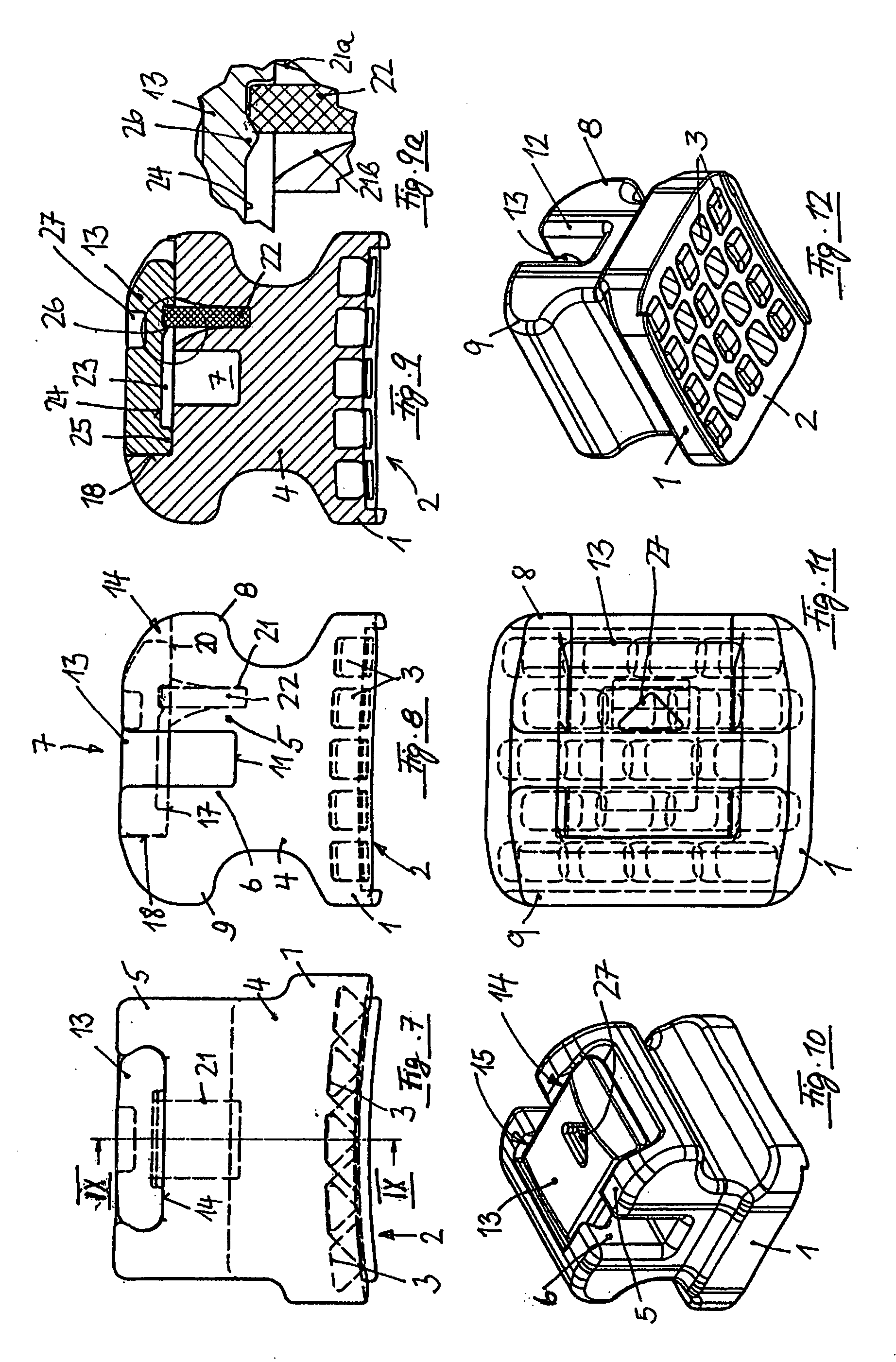Self-ligating bracket for use in orthodontics
- Summary
- Abstract
- Description
- Claims
- Application Information
AI Technical Summary
Benefits of technology
Problems solved by technology
Method used
Image
Examples
Embodiment Construction
[0049]The bracket illustrated in FIGS. 1 to 12 has a curved base 1 the curvature of which is approximated to the front of a tooth. The bottom surface 2 of the base 1, forming the lingual side of the bracket, is provided with recesses 3 of undercut shape, arranged in a row. The recesses 3 have a rectangular contour, in the cross-section shown in FIG. 3. In a cross-section normal to that cross-section, the recesses 3 have a rhombic contour, as illustrated in FIG. 1. In order to glue the bracket onto a front of a tooth, an adhesive may be applied on the bottom surface 2. The interaction between the undercut recesses 3 and the adhesive provides good bonding strength. The recesses 3 and, together with them, the undercuts are orientated identically in each row. Between the rows they are, however, alternately oriented in one and the other direction. This has the effect that when thrust is applied on the bracket in the mesial-to distal direction the same bonding strength will be achieved as...
PUM
 Login to View More
Login to View More Abstract
Description
Claims
Application Information
 Login to View More
Login to View More - R&D
- Intellectual Property
- Life Sciences
- Materials
- Tech Scout
- Unparalleled Data Quality
- Higher Quality Content
- 60% Fewer Hallucinations
Browse by: Latest US Patents, China's latest patents, Technical Efficacy Thesaurus, Application Domain, Technology Topic, Popular Technical Reports.
© 2025 PatSnap. All rights reserved.Legal|Privacy policy|Modern Slavery Act Transparency Statement|Sitemap|About US| Contact US: help@patsnap.com



